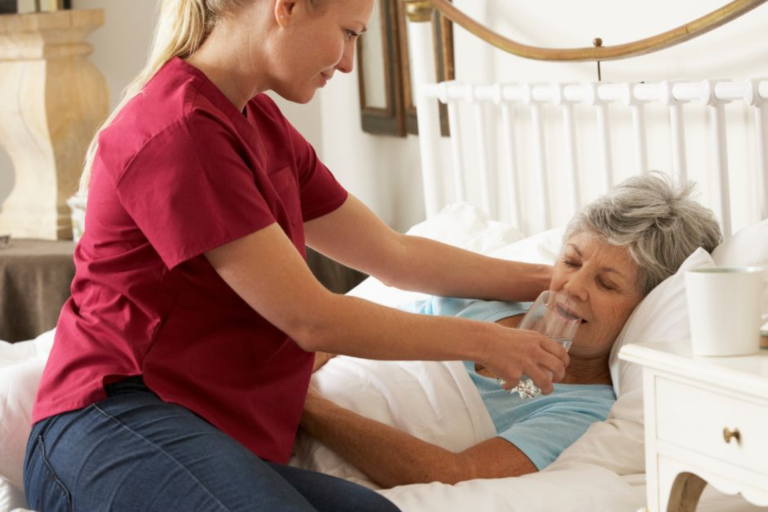Dehydration is harmful to the health of seniors.
Everyone, but especially older persons who are more susceptible to dehydration, should drink enough water.
According to a UCLA research, 40 percent of seniors may be chronically dehydrated.
Dehydration is a common result, and it can lead to a range of major health issues, including UTIs, falls, kidney stones, and more.
Adults aged 65 and up had the highest rates of dehydration hospitalization.
We explain why dehydration is so frequent in seniors, the moderate and serious dehydration symptoms, the health hazards of being dehydrated, how much water a person requires, and the benefits of staying hydrated to help keep your older adult well and safe.
Why is elderly dehydration so common?
Because their bodies contain less water, older folks are more likely to become dehydrated.
They’re also more likely to have health problems or use prescriptions that make them more prone to dehydration, such as blood pressure meds that expel water from the body.
Seniors should also:
- Are less susceptible to the sensation of thirst
- Have a reduced ability to maintain fluid equilibrium in the body
- Kidneys that are less effective, causing urine to contain more water
- Frequently utilize drugs that have unpleasant side effects such as diarrhea or excessive perspiration.
Symptoms of dehydration in seniors
Early dehydration symptoms in older adults often go unrecognized because many of the signs of mild dehydration could easily be caused by other health conditions or medication side effects.
But it’s far easier to correct mild dehydration than deal with the complications of serious dehydration symptoms.
Being familiar with the signs helps you take action sooner rather than later.
Mild dehydration symptoms
- Dry mouth
- Dark-colored urine or very small amount of urine
- Fatigue
- Dizziness
- Muscle cramps in limbs
- Headaches
- Feeling weak or unwell
- Being sleepy or irritable
- Serious dehydration symptoms
- Low blood pressure
- Confusion
- Difficulty walking
- Fast, but weak pulse
- Bloated stomach
- Wrinkled skin with no elasticity – try the “pinch test”
- Dry and sunken eyes
- Breathing faster than normal
- Severe cramping and muscle contractions in the body
- Convulsions
Get in touch with Rivers of Hope, if you or an aging loved one are considering hiring a Home Care Services in Fall River, MA, call the caring staff at Rivers of Hope today at 508-857-0629. Providing Independent, Dependent, and Companion Care Services in Brockton, Boston, Braintree, Avon Randolph, Abington, and the surrounding areas. riversofhopes.com
Find out how we can help make 2022 the greatest year yet for a senior you love!





